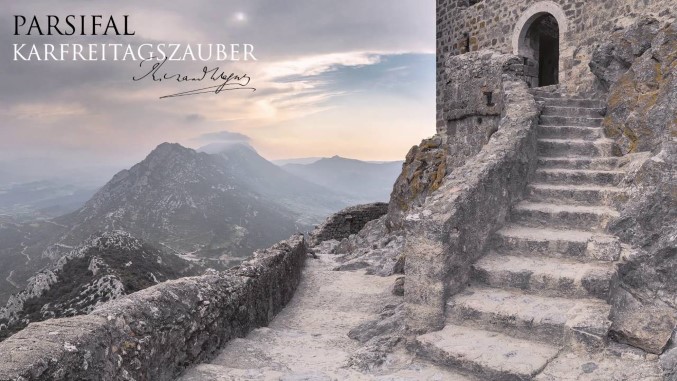
It is Good Friday, the day of the Passion of our Lord and a profound event for the Christian believer, for on this day the reversal of darkness into Light was initiated.
This turning point from stagnation to transfiguration, sickness to strength, and death to life is also the theme of Wolfram von Eschenbach’s medieval German Minnesang poem Parzival, which forms the basis of Richard Wagner’s last opera and, in fact, his last composition. The piece we are hearing is from Act 3 and sometimes is called the “Good Friday Music” or “Good Friday Spell,” even though the word “Magic” would probably better convey the German Zauber—the miraculous transformation of the world by the initiate.
Parsifal tells the story of the evolution of the individual who is innocent—but also immature and uninterested—and who has yet to learn the power of kindness and the need to ask the right questions. Innocence must be paired with higher knowledge to truly introduce change. Much like in the biblical story of Gideon, Parsifal conveys that it is not enough to be pure; one must also be knowing and competent to become an instrument of divine liberation.
Parsifal ultimately learns to ask the deeper questions of life that lead him to find the Holy Grail that is said to have held the blood of Christ on Good Friday.
It is the day that began our return to the light. And this wonderful music by Richard Wagner captures some of the mystical process of resurrection in sounds of beauty and majesty.
Related:
The story of Parzival as interpreted in Anthroposophy (Anthrowiki)
Parsifal by Richard Wagner (Wikipedia)
Libretto of Parsifal (in German and English)
views: 6
